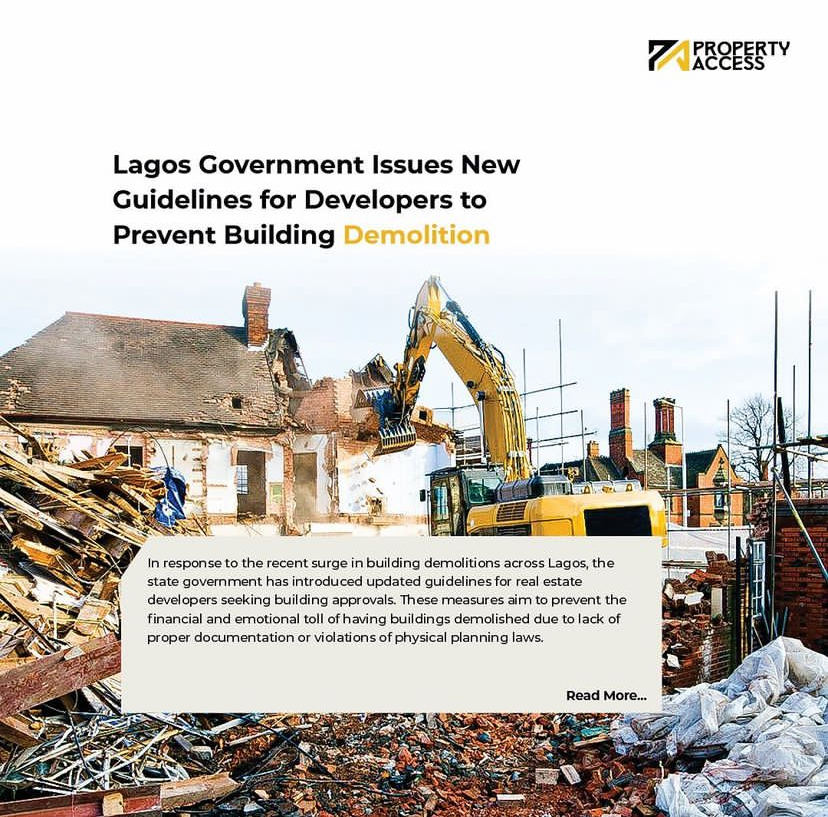In response to the recent surge in building demolitions across Lagos, the state government has introduced updated guidelines for real estate developers seeking building approvals. These measures aim to prevent the financial and emotional toll of having buildings demolished due to a lack of proper documentation or violations of physical planning laws.
The updated guidelines include:
Proof of Ownership: Developers must present legal documents proving rightful ownership of the property, such as a Certificate of Occupancy (C of O) or a Deed of Assignment. This ensures there are no property disputes and that construction is on legally owned land.
Subsoil Investigation Report: A geotechnical analysis must be provided to assess the soil’s suitability for construction. This report, prepared by certified engineers, identifies potential risks like soil instability or high groundwater levels that could compromise the building’s foundation.
Electrical and Mechanical Drawings: Developers are required to submit detailed electrical and mechanical layouts. These include wiring, circuit plans, and specifications for HVAC, plumbing, and other systems to ensure compliance with safety standards.
Survey, Layout, and Structural Plans: Survey plans must confirm that land dimensions meet legal requirements. Structural drawings, which detail foundational elements, beams, and load-bearing walls, must adhere to state safety standards.
All architectural designs must be approved by an ARCON-registered architect, ensuring that the project meets Lagos building codes and regulations. These comprehensive plans provide a blueprint for the entire construction process, minimizing costly errors and ensuring safety.
While the guidelines are necessary for safety and compliance, some developers argue that certain requirements seem excessive and appear to serve as revenue-generating measures for the state government.




